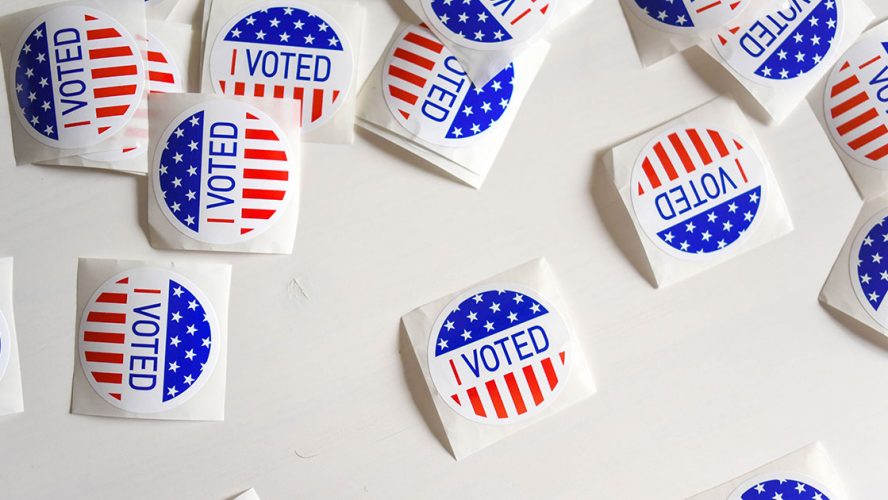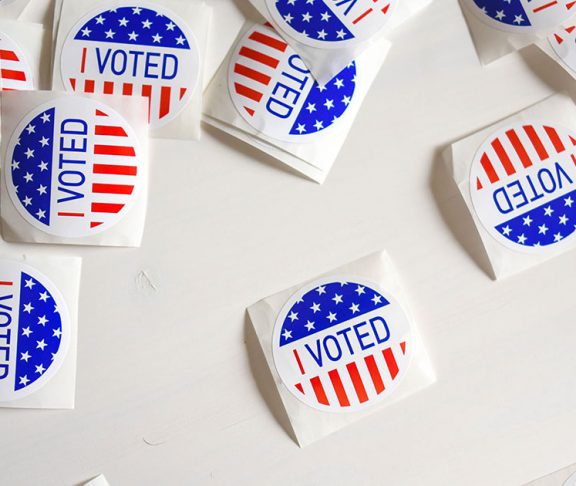
Rachita Singh
Public Relations and Communications Coordinator, American Association of People with Disabilities (AAPD)

Lilian Aluri
REV UP Voting Campaign Coordinator, American Association of People with Disabilities (AAPD)
The disability community is the largest minority group in America, spanning 61 million adults. People with disabilities make up one of the largest voting blocs, and yet they are consistently disregarded.
As the American population ages and more people find themselves disabled due to the impacts of COVID-19, the number of people with disabilities will only grow. Political candidates understand the impact of winning the votes of major voting blocs, such as Black voters and women, but they have largely missed out on the opportunity to connect to people with disabilities, which included 38 million eligible voters in 2020.
Issues that matter
In election and news cycles, issues that affect the disability community are still not often discussed, or are discussed without mentioning their impact on people with disabilities.
For example, before the 2020 presidential election, candidates barely mentioned disability in campaigns, policy plans, or debates, let alone specifically addressed voters with disabilities. In 2020, more candidates addressed disability issues explicitly in their plans, however, mentions of disability in campaigning were still few and far between. And while healthcare is a consistently important issue for voters, only a few candidates specifically focused on the impact of their plans on the disability community.
Each policy area impacts people with disabilities, providing ample opportunity for candidates to connect to disabled voters. People with disabilities are facing disproportionately high unemployment; 1 in 5 disabled workers lost their job during the pandemic.
People with disabilities continue to be paid subminimum wage, while facing rising healthcare and living expenses. Our criminal justice system targets people with disabilities and particularly people of color with disabilities. These are just a few of the many policy failures that impact our community.
Chance for change
Each of these policies is a chance for candidates, along with legislators, to make a difference that will enable both people with and without disabilities to thrive and be equal members of society. The disability vote is a powerful voting bloc that has already been organizing to call on local, state, and national candidates to address the issues important to us.
Movements like #CripTheVote and the REV UP Voting Campaign have been shifting the dynamic of elections and engaging candidates and political leaders in disability issues.
The work of disability advocates to build the power of the disability vote has been changing the dialogue around disability issues, and we witnessed an increase in mentions and focus on disability from several of the 2020 presidential candidates. Throughout the 2020 elections, advocates in the disability community hosted candidate forums on disability issues, helped protect voting rights and accessibility, and got out the vote.
Our political leaders must be held accountable for actions that negatively impact people with disabilities, for example, limiting funding for healthcare programs and passing restrictive voting bills. They must also start taking an active stance on policies that will advance the rights and well-being of people with disabilities in this country, and address inequities and discriminatory policies, like subminimum wage.
This starts with making sure that disabled people are a part of the decision-making process. Currently, only 3 out of 100 Senators and 10 out of 435 Representatives have disclosed disabilities. We need to put more people with disabilities in seats of power in order to truly represent the American people.
Disability rights are civil rights, and advocates will continue to grow the power of the disability voting bloc, increase candidate engagement, and push for long-overdue policy changes.



